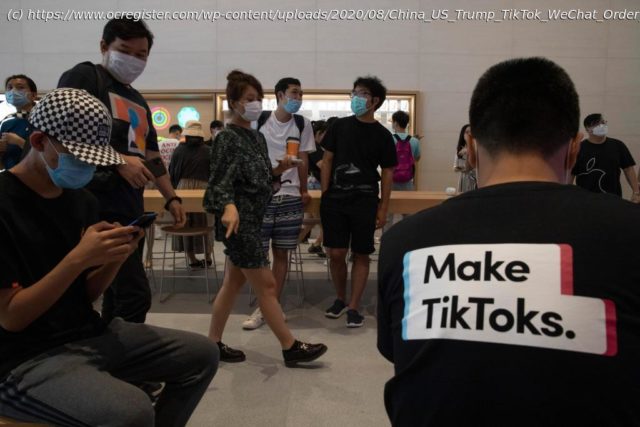President Donald Trump has ordered sweeping but vague ban on dealings with the Chinese owners of popular apps TikTok and WeChat, saying they are a threat to U.S. national security, foreign policy a…
President Donald Trump has ordered sweeping but vague ban on dealings with the Chinese owners of popular apps TikTok and WeChat, saying they are a threat to U. S. national security, foreign policy and the economy. But it’s far from clear what the administration intends to actually do when the bans take effect in 45 days, since the orders are currently blank checks waiting to be filled in. Uncertainty also surrounds what effect the orders will have on the apps’ users, whether the administration will face legal challenges over its authority to ban consumer apps, and what the companies — or China — will do next. Microsoft is in talks to buy parts of TikTok, in a potential sale that’s being forced under Trump’s threat of a ban. Here’s what’s at stake: Q: What are these companies? A: TikTok, owned by ByteDance, is an increasingly popular video app with 100 million U. S. users and hundreds of millions globally. It has a fun, goofy reputation, full of people lip-syncing, dancing and pulling pranks, and is exceptionally easy to use. Like other social-media companies, it has raised concerns about the privacy of its users and how it moderates content. It has spawned an influencer culture of its own and nurtured music hits; Facebook and Snapchat see it as a competitive threat. Tencent’s WeChat is a critical communications and payments service in China and with Chinese emigrants abroad, with 1.2 billion users globally. It doesn’t break out U. S. users, but mobile research firm Sensor Tower estimates 19 million downloads in the U. S. since 2014. But Tencent is intertwined with other major U. S. entertainment brands. It owns Riot Games, publisher of hit video game League of Legends, and has a big stake in Epic Games, the company behind video game phenomenon Fortnite. It also has a streaming deal with the NBA. Q: What would the orders do? A: The first thing they’ve done is to spread fear, uncertainty and doubt. U. S. Secretary of State Mike Pompeo earlier this week said that “we want to see untrusted Chinese apps removed from U. S. app stores.” The vague wording of the orders, which prohibit “any transaction” under U. S. jurisdiction with either Tencent or ByteDance, could be interpreted to support an app-store ban and other measures, experts said. It’s not clear how it would apply to Tencent’s other properties and partnerships. We’ll presumably know more in 45 days. Q: Why is the Trump administration cracking down on TikTok and WeChat? It’s driven by concerns over collection of American users’ data and longstanding complaints about Chinese business tactics, according to two White House officials not authorized to speak publicly about private deliberations.






